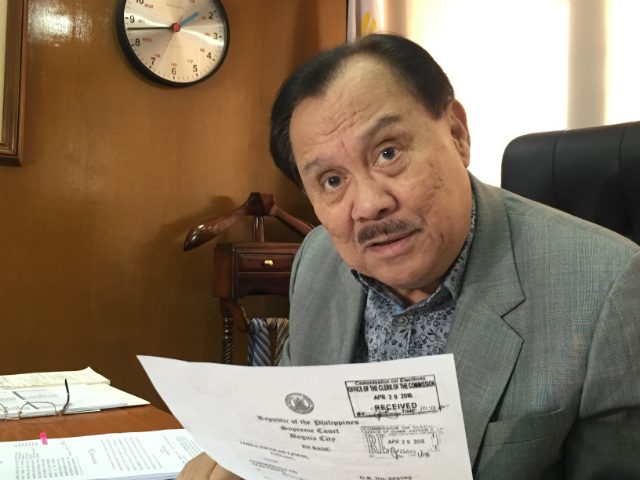SUMMARY
This is AI generated summarization, which may have errors. For context, always refer to the full article.

MANILA, Philippines – Overseas Filipino workers (OFWs) can continue campaigning in their host countries except in places such as Philippine embassies, the Commission on Elections (Comelec) confirmed following a Supreme Court issued a ruling on this.
Comelec Commissioner Arthur Lim on Wednesday, April 20, said this has been the poll body’s long-standing rule.
Lim, the commissioner in charge of overseas voting, said there’s no debate about it. He explained that the Comelec cannot ban campaigning outside Philippine embassies because that’s already beyond Philippine territory.
Lim cited an example: “Doon sa palengke ng Riyadh, anong authority ng Comelec sa palengke ng Riyadh? Wala. Pero ang pinagbabawal ng Comelec sa campaigning, doon sa loob ng ating embahada, konsulada, o kaya voting center where the election is actually taking place like the Bayanihan Center in Hong Kong.”
(In the market of Riyadh, what authority does Comelec have in the market of Riyadh? None. What the Comelec bans is campaigning inside our embassies, consulates, or voting centers where the election is actually taking place, like the Bayanihan Center in Hong Kong.)
The SC on Wednesday, April 20, temporarily stopped the Comelec from implementing provisions of the law that ban campaigning abroad.
One of these is Section 36.8 of Republic Act (RA) 9189, as amended by Republic Act 10590, declaring it unlawful “for any person to engage in partisan political activity abroad during the 30-day overseas voting period.”
‘Unconstitutional prohibition,’ petitioner says
In a media briefing on Wednesday, SC spokesman Theodore Te said the High Court “issued a temporary restraining order effective immediately enjoining the Comelec,” among others, from implementing Section 36.8 of RA 9189 and certain provisions of Comelec Resolution 10035.”
The SC said the TRO, however, does not apply “within Philippine embassies, consulates, and other posts where overseas voters may exercise their right to vote pursuant to the Overseas Absentee Voting System, where partisan political activities shall still be prohibited until further orders from the Court.”
The SC then required the Comelec to comment on the petition “within a non-extendible period of 5 days” upon receipt of the official notice.
The SC issued the TRO after businesswoman Loida Nicolas Lewis, head of the group US Pinoys for Good Governance, filed a case against what her group called “the unconstitutional prohibition on political campaigning abroad during the election period.”
Lewis, who is campaigning for presidential bet Manuel “Mar” Roxas II and his running mate, Leni Robredo, said the TRO from the SC is “a big win for Filipinos overseas.”
The Comelec has urged 1.38 million overseas voters to cast their ballots during the 30-day overseas voting period, running from April 9 to May 9, which is election day in the Philippines. – Rappler.com
Add a comment
How does this make you feel?
There are no comments yet. Add your comment to start the conversation.